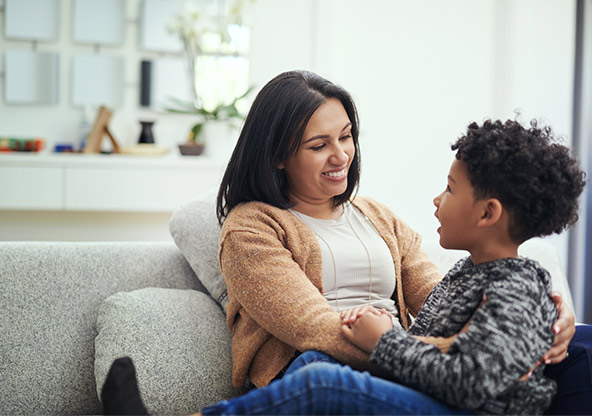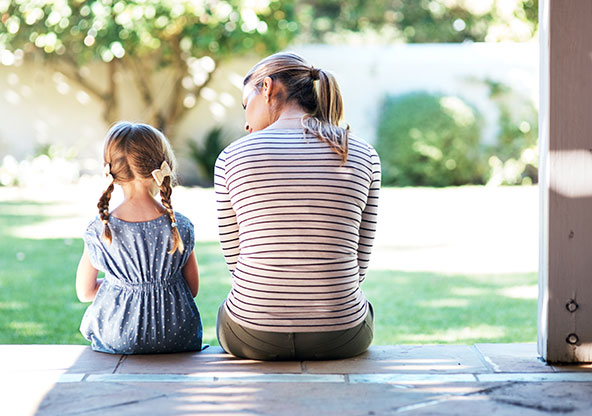Helping Children Cope in the Aftermath of a Natural Disaster
Written by Elena Mikalsen, PhD, division chief of pediatric psychology at CHRISTUS Children's

Children can react with great anxiety after learning about a natural disaster, such as a flood or a hurricane, or after surviving one. Children’s reactions will often depend on their age and developmental levels. Younger children are often afraid of weather anomalies, and learning of an event such as a flood can intensify fears and even cause the child to be afraid to leave their home. Younger children may hide, react with severe separation anxiety or experience panic attacks when seeing signs of rain or hearing thunder, for example. Older children may experience intense panic, a sense of hopelessness, exhibit reckless behavior, engage in substance use, or begin to fear leaving their home.
At all ages, children may be afraid the natural disaster will repeat, or that they will die or lose a loved one in the disaster.
While we expect most children will experience less anxiety in the weeks or a few months after the weather event, if your child continues to be anxious, continues to avoid leaving home, does not seem to enjoy previously loved activities, and is tearful or has nightmares, they may be experiencing posttraumatic symptoms. Please seek an evaluation from your pediatrician or a mental health expert.
There are many ways you can help at home while your child is still recovering from the event:
- Limit exposure to the media. The news is focused on tragedy and sadness, and children are not good at filtering this kind of information. It can cause anxiety particularly when children’s or parents’ deaths are mentioned.
- Calmly provide facts about the event and only answer questions your child asks. Do not provide extra information. Do not offer opinions. Do not discuss global world issues your child may not understand.
- Model good coping skills and resilience. Children learn coping skills from parents.
- Maintain healthy schedules and eating habits—children thrive in predictability and routines. Deviations from routines maintain anxiety. Go ahead and send children to all planned activities. Do not keep children at home because you feel anxious about the weather. Be safe but follow standard precautions, not extra precautions. If you act out of worry, your children will become anxious.
- Seek support from your community. Find church, school, and community events to attend. Such support lessens trauma and anxiety.
- Create a safety plan for your family for a natural disaster and share the plan with your child. Ask them what they’d like to add to the plan.
- Listen to any stories and feelings your child may wish to share without judgement or time constraints.


